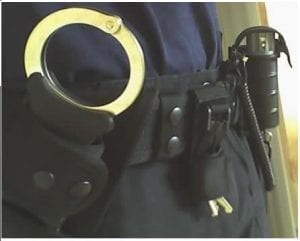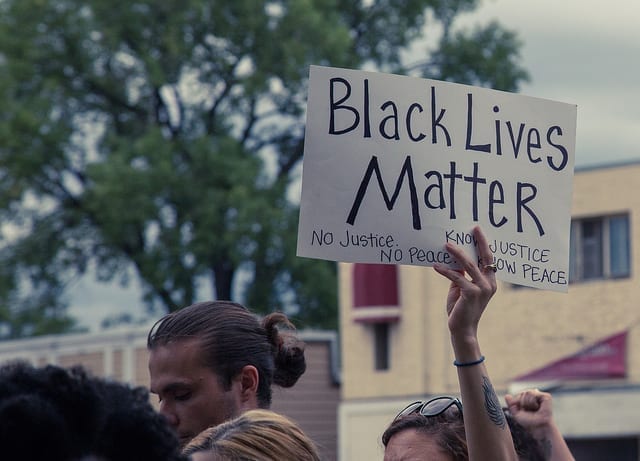In a split decision, the justices ordered a lower court to consider whether the officer’s lawsuit is even legal under Louisiana state law.
On Monday, the U.S. Supreme Court discarded a lawsuit filed by a Louisiana police officer against Black Lives Matter activist and organizer DeRay Mckesson.
According to NBC News, the lawsuit focuses on a 2016 protest staged in response to the fatal police shooting of Alton Sterling. During a demonstration, a rioter threw an object at the plaintiff officer, striking him in the face and causing serious injuries including brain trauma.
Although the assailant was never identified, the injured officer opted to sue Mckesson, saying the activist had somehow been negligent in organizing the protest.
Mckesson had earlier argued that allowing lawsuits against activists could have the consequence of suppressing free speech, as people may hesitate to participate in demonstrations “out of the fear that they might be held responsible if anything happens.”
The Advocate reports that Mckesson’s legal team cited the landmark, unanimous 1982 Supreme Court decision in NAACP v. Claiborne Hardware Co., a civil suit in which a Mississippi-based company tried to hold the NAACP liable for “damages” to its business caused by local protests and boycotts which engendered very limited violence.
The U.S. Supreme Court sided with the NAACP, stating that any group’s efforts to start or support peaceful protests is constitutionally protected.
NBC News notes that a federal district court quickly dismissed the officer’s lawsuit, with the panel opining that Black Lives Matter protests are so loosely organized that no single individual can be held as a leader.
The same panel also blocked the suit on grounds that it was incompatible with the First Amendment.

However, the 5th U.S. Circuit Court of Appeals reversed the decision, saying that the protest Mckesson helped organize took place on a highway close to the Baton Rouge Police Department’s headquarters—thereby ensuring that some sort of confrontation with law enforcement would be inevitable.
But on Monday, the country’s Supreme Court gave Mckesson a temporary reprieve.
In a 7-1 ruling—with dissenting Justice Clarence Thomas declining to offer an alternate opinion—the justices remanded the matter back to the lower courts, recommending they consider whether Louisiana state law even allows for this sort of litigation.
“The Fifth Circuit should not have ventured into so uncertain an area of tort law—one laden with value judgments and fraught with implications for First Amendment rights—without first seeking guidance on potentially controlling Louisiana law from the Louisiana Supreme Court,” the majority wrote.
While some media outlets, like Axios, have called the unsigned ruling a “temporary win” for Mckesson, Donna Grodner—the attorney representing the anonymous John Doe litigant—said the justices were simply trying to clear up any possible uncertainty about the law.
“The decision signifies the 5th Circuit got it right,” Grodner said.
Sources
Supreme Court rejects lawsuit against Black Lives Matter activist
Supreme Court sends Louisiana Black Lives Matter lawsuit back for another round


Join the conversation!